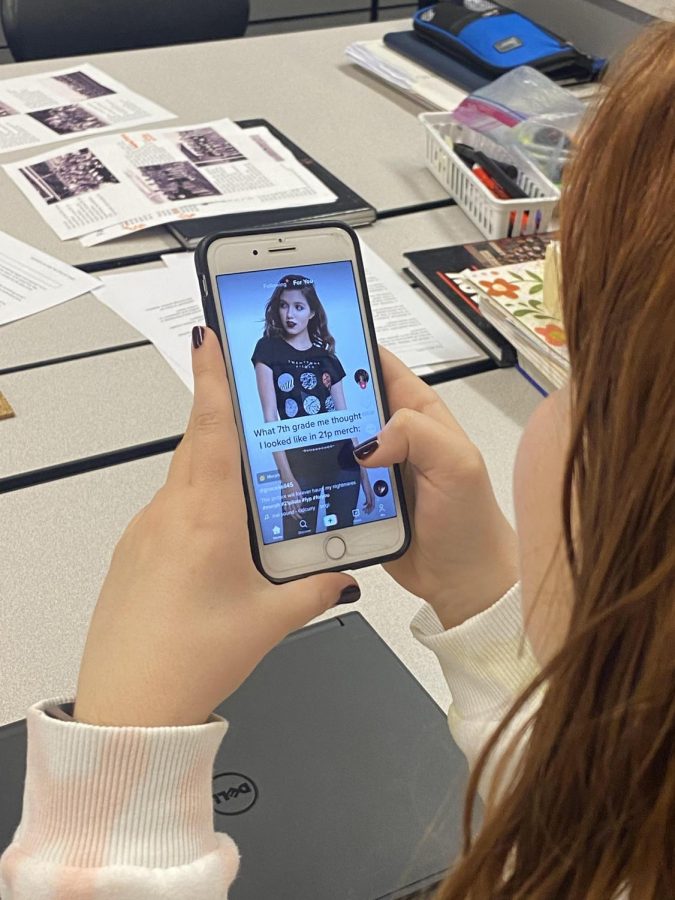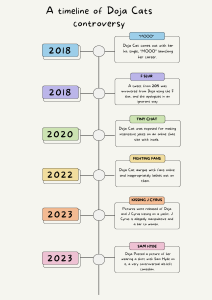Tik Tok Discrimination?
Junior Madeline Frambes scrolls through the famous TikTok before Journalism class.
January 10, 2020
The newly popular “TikTok” app has taken our generation (and many others) by storm, with more than 500 million different users on the addictive platform. In the past year, the app has gained unfathomable amounts of media since its somewhat slow startup in 2017, arguably developing the platform into something completely different than before.
Tik Tok comes from the late Musically app, after Musically was purchased for nearly $800 million dollars by Beijing based company, ByteDance. The technology firm decided to merge the product with one of their own, TikTok, which had resulted in a huge success and profit on their part. According to techcrunch.com, there has been nearly a 310% revenue increase, due to the program’s in-app purchases, reaching a $50 million in income. In the coming years, the growth is suspected to grow and increase even more rapidly than before.
The social media platform allows users to post self-expressive videos that can be either be seen by the creator themself, certain friends, or everyone on the platform. The content of the app is seemingly endless, with new trends and creators being popularized weekly. Some of the most successful creators, including Loren Gray and Charli D’amelio, have more than 15 million fans on their accounts.
The majority of content from smaller creators is often unrecognized, and the complex algorithm of the app makes it extremely difficult for users to become “TikTok famous,” as users say. Some argue that the app discriminates based on gender, race, and sexual orientation, restricting certain types of videos from the For You Page based on these multiple factors. According to slate.com, the company has admitted to limiting content posted by disabled, LGBTQ, and fat creators, stating that the content created by these users was assumed to be “vulnerable to cyberbullying.”
In a study conducted by The Guardian, researchers found that TikTok’s moderation guidelines had banned all content that could be seen as pro-LGBTQ, even in countries where homosexuality had never been illegal. The restrictions were placed on top of the general moderation guidelines already in place. One guideline includes the censorship of topics sensitive to China, the country that owns the app. In China, the app is actually unavailable for download, most likely to protect residents from gathering possibly dangerous information about their homeland.
Although packed with many differing issues, the platform is still growing rapidly and evolving almost daily, and it doesn’t seem that the “hype” will be slowing down anytime soon.
Junior Kayci Brahler says that “Tik Tok is most certainly entertaining. It definitely helps me procrastinate at times. I like more of the comedic content rather than the “trendy” dances that go viral.”









